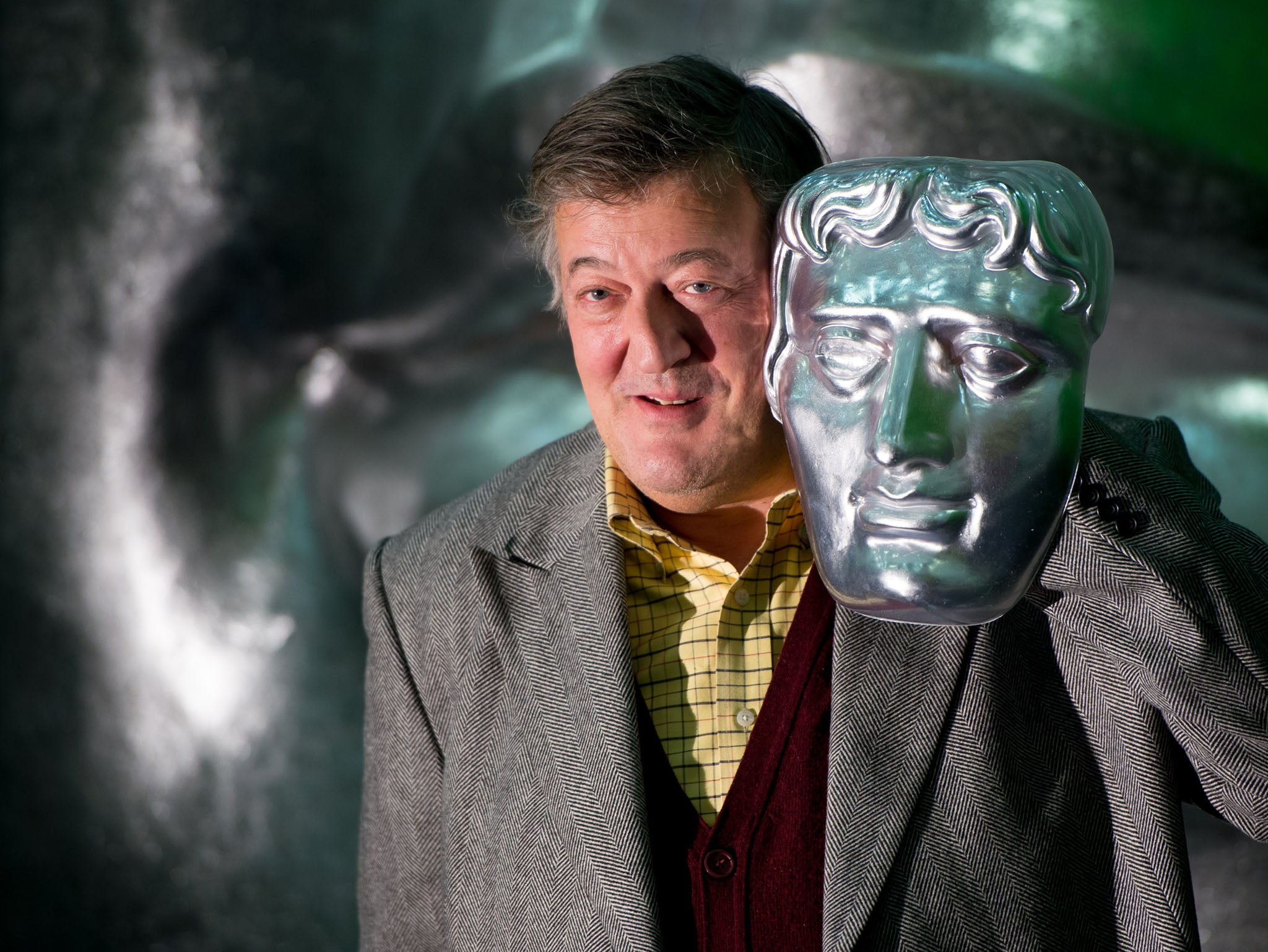Stephen Fry, which child sexual abuse victim do you think changed their mind about trigger warnings when you told them to 'grow up'?
Victims of abuse or rape are not 'self pitying', they're just taking care of their mental health – and that's something Stephen Fry should understand


Your support helps us to tell the story
From reproductive rights to climate change to Big Tech, The Independent is on the ground when the story is developing. Whether it's investigating the financials of Elon Musk's pro-Trump PAC or producing our latest documentary, 'The A Word', which shines a light on the American women fighting for reproductive rights, we know how important it is to parse out the facts from the messaging.
At such a critical moment in US history, we need reporters on the ground. Your donation allows us to keep sending journalists to speak to both sides of the story.
The Independent is trusted by Americans across the entire political spectrum. And unlike many other quality news outlets, we choose not to lock Americans out of our reporting and analysis with paywalls. We believe quality journalism should be available to everyone, paid for by those who can afford it.
Your support makes all the difference.In an interview with Dave Rubin on the American talk show ‘Rubin Report’ yesterday, the writer, actor, presenter, and all round national treasure Stephen Fry decided that "self pity" by survivors of child sexual abuse was an appropriate target for his ire.
Fry’s argument focused on censorship and the “deep infantilism” he perceives in today’s society. Thee discussion included mentions of the unsuccessful Oxford University petition to remove a statue of colonialist Cecil Rhodes and the application of so-called "trigger warnings" to literature.
Fry remarked that many great plays contain scenes of rape and murder, including Shakespearian classics such as Titus Andronicus and Macbeth. "They’re terrible things and they have to be thought about, clearly," Fry said, "but if you say you can’t watch this play… [because] it might trigger something when you were young that upset you once, because uncle touched you in a nasty place, well I’m sorry.
"It’s a great shame and we’re all very sorry that your uncle touched you in that nasty place – you get some of my sympathy – but your self pity gets none of my sympathy. Self pity is the ugliest emotion in humanity. Get rid of it, because no one’s going to like you if you feel sorry for yourself. Just grow up."
The language Fry uses is so utterly patronizing that it strips his wider points, about the inability of some to engage with complex issues, of any real value. To belittle someone’s childhood experience of being abused by a family member and reduce it to ‘uncle touched you in a nasty place’ is deeply callous and irresponsible.
Fry is a well-respected public figure, an entertainer and an intellectual. For anyone who has suffered a sexual trauma, in childhood or adulthood, to hear him tell them to "grow up", that they are "unlikeable" if they have not come to terms with what happened to them, that their emotions are "ugly", is hugely damaging.
Survivors of sexual abuse aren’t waiting around hoping that Fry will feel sorry for them. They are trying to heal and get on with their lives, without being constantly reminded of the event. Which is why trigger warnings are sometimes useful.
Not everyone who suffers from post traumatic stress disorder or has been a victim of a crime such as rape feels that trigger warnings are necessary or helpful. That's because all people are different. Some feel that trigger warnings imply a sense of fragility and make subjects more difficult to broach; others, as the writer Laurie Penny stated in an essay for the New Statesman, describe trigger warnings as facilitating openness and debate, and allowing people to make adult decisions about what’s best for their mental wellbeing.
Deciding that you’re not ready to engage with a book, a film, a play or a social situation that could cause a panic attack or prompt flashbacks, or be otherwise damaging to your mental health, is an example of self care.
Survivors of trauma and abuse are not cry babies or whiners. They are not interested in shutting down debate or limiting artistic expression where it relates to taboo issues. In fact, it is in the interest of survivors that we do create and discuss culture that explores traumatic events. One of the best ways to combat rape is to educate others about the reality of rape; exploring rape in film, literature and on television in a way that doesn’t titillate the viewer, but focuses on the effect on the victim and their process of recovery, is one way to do that.
Fry’s comments about our tendency to approach issues in a black and white way, unable to handle the slightest hint of complexity, are worth discussing. We are all infantilised by reductionist debates around issues such as immigration, the EU, the penal system and the threat of terrorism, and when we’re exposed to reporting on the attire of politicians rather than their policies. This shuts down debate far more often than using trigger warnings.
Fry has done much in his career to raise awareness about mental illness through his candour about his diagnosis of bi-polar disorder. Surely he can see that comments such as "grow up" and "stop feeling sorry for yourself" repeat exactly the language used to shame those managing mental health problems throughout their lives, as he has campaigned against?
Join our commenting forum
Join thought-provoking conversations, follow other Independent readers and see their replies
Comments